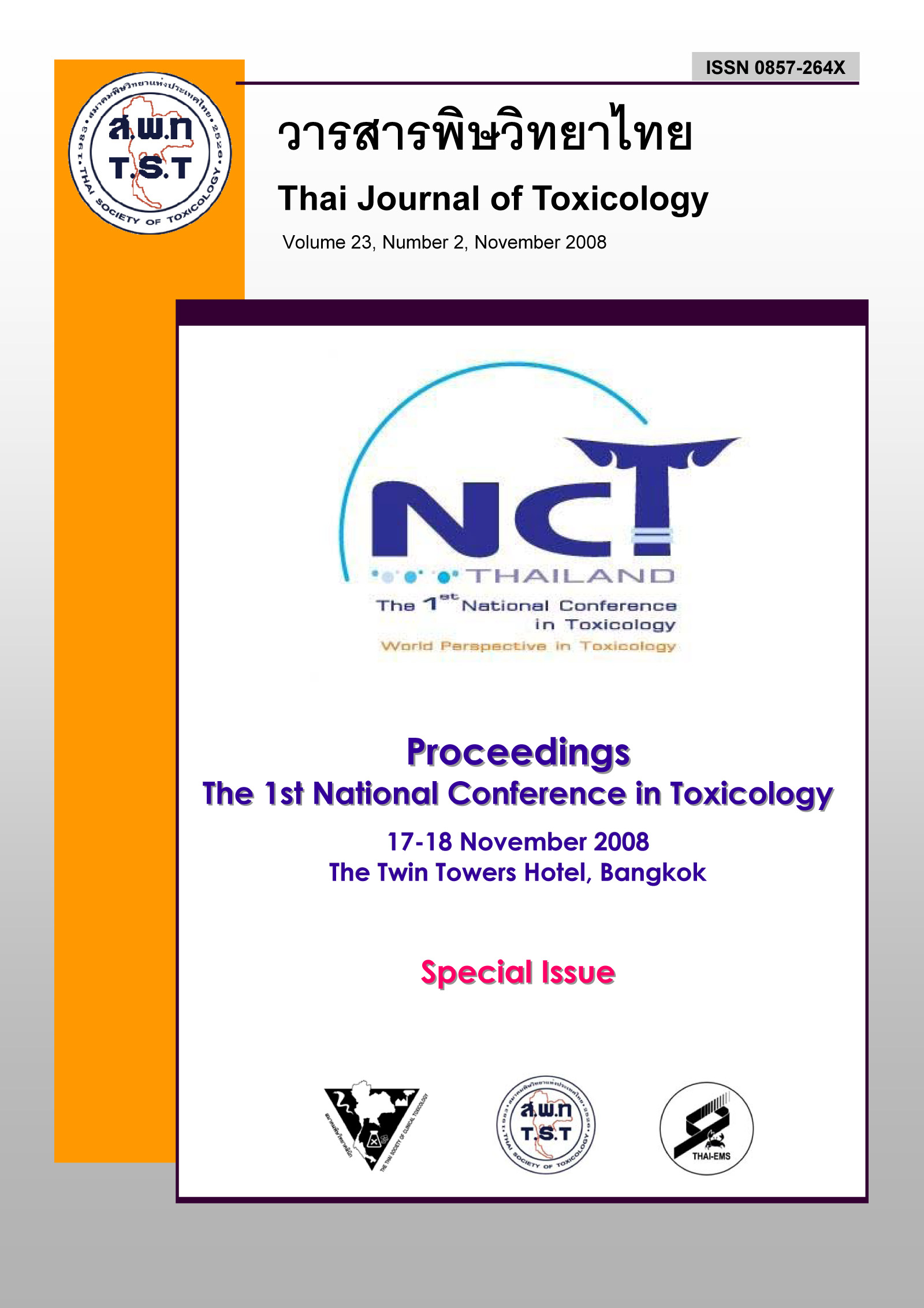Mutagenicity of Four Salted Foods and Their Modulating Effects on the Mutagenicity of Urethane
Main Article Content
Abstract
We determined the mutagenicity of boiled salted duck egg, pickled green mussel, fried salted Spanish mackerel and fried salted beef by transferring the three-day old trans-heterozygous (mwh flr+/mwh TM3) larvae to an experimental medium (containing each sample 75% substituted for yeast). We evaluated the antimutagenicity of each sample by transferring 3-day old larvae to an experimental medium that had urethane (20 mM)) as the co-administration study while pre-feeding studies were also performed by mating the parental flies on the experimental medium to obtain 3-day old larvae that were subsequently raised on the regular medium containing urethane as the type 1 study or the experimental medium containing urethane as the type 2 study. The round wings of the surviving flies were analyzed for the occurrence of mutant spots. The results showed that none of the sample was mutagenic. Interestingly, boiled salted duck egg revealed its antimutagenicity in all studies while pickled green mussel exhibited its antimutagenicity only in the pre-feeding studies. Some digested proteins of pickled green mussel and the digested egg yolk protein occurred in the digestive tract of the larvae might eliminate the free radical generated via the activation of urethane. On the other hand, fried salted Spanish mackerel enhanced the mutagenicity of urethane in all studies while salted beef enhanced the mutagenicity of urethane only in the pre-feeding type 2. The enhancing effect was supposed to be due to the amount of sodium chloride in the sample could impair the repairing system during DNA damage.


